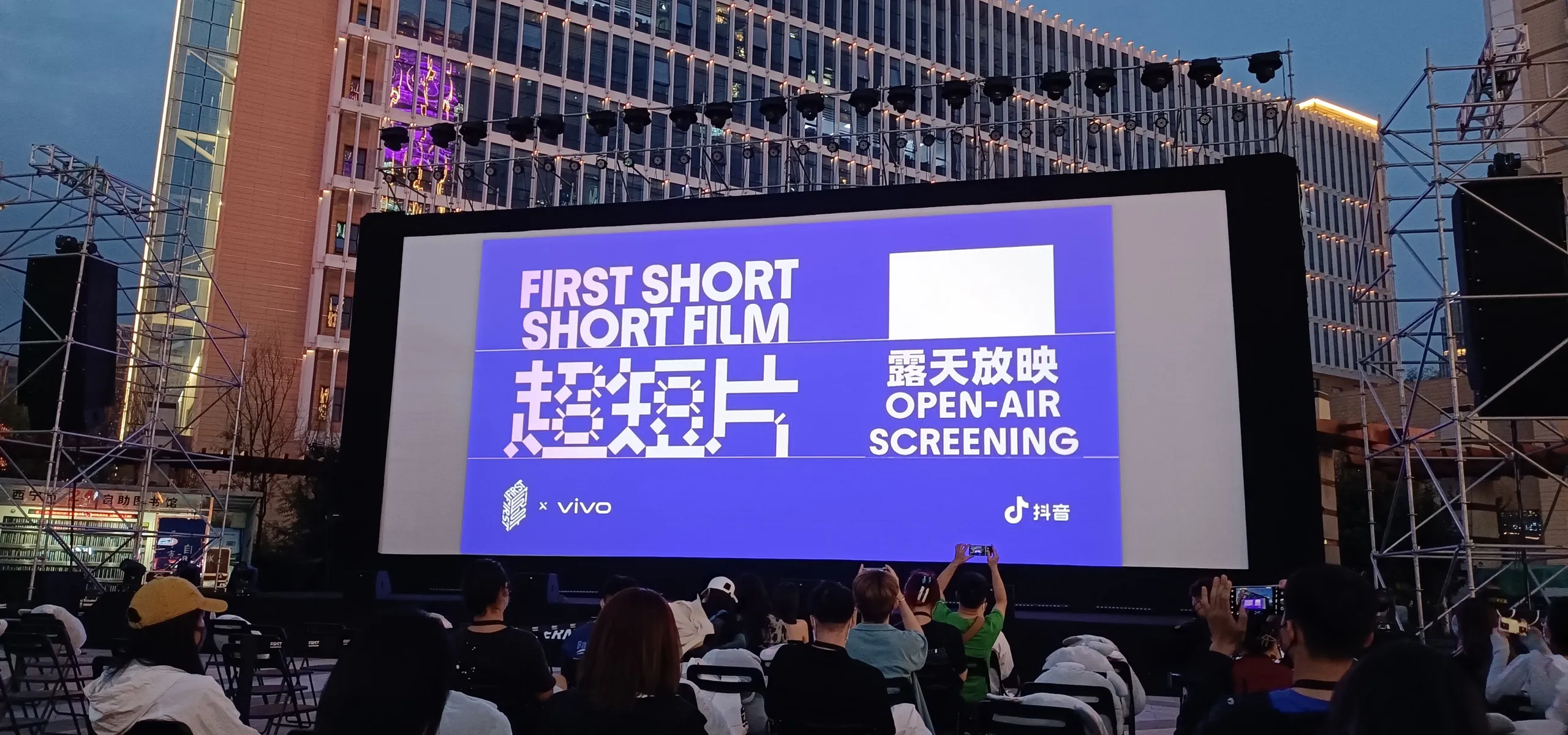Short short movies are lowering the threshold of filmmaking, five minutes at a time
W hen Beijing-based filmmaker Ikram Nurmehmet received an invitation a few months ago from the organizers of the FIRST International Film Festival to shoot a movie, he hesitated to accept. The reason was the organizers’ two conditions: The film had to be under five minutes long, and be shot on a mobile phone or other portable device.
Those were the requirements for entries in the Short Short Film Competition at FIRST, an annual film festival that turns the sparsely populated northwestern city of Xining in Qinghai province into a hub for Chinese indie filmmakers and filmgoers every July. The “short short film (超短片),” however, is not something exclusive to FIRST, save for the name. In fact, this short-form filmmaking is becoming increasingly popular in both China and other parts of the world.
Held quarterly in Chicago since 2019, the Big Teeth Small Shorts Film Festival calls these five-minute pops “small shorts,” while setting aside a special category for what they call “micro shorts” that run under 90 seconds. Last year’s Beijing International Film Festival included the Samsung Short Mobile Film section, entries to which also could not exceed five minutes, while this year’s edition had a Short Video section for works under 10 minutes in length. Supported by Sony Xperia, Tokyo’s Short Shorts Film Festival & Asia has also held a Smartphone Film Competition for the past two years.
“Numerous factors have contributed to the rise of short short films,” says Tong Shan, film researcher and curator at the Beijing International Short Film Festival, a 10-day event that typically takes place in November. “First of all, there’s a commercial reason: festivals need brand sponsorship.” Just like the festivals in Beijing and Tokyo, the Short Short Film Competition at FIRST is also organized in partnership with a smartphone company, namely the domestic brand Vivo. Sponsoring the competition since its launch in 2020, Vivo even has its own prize, given to the best short work that used a Vivo smartphone to shoot more than 80 percent of its footage.
“Other factors are technological prerequisites: Web 2.0, short video platforms, better quality smartphones, and so on,” explains Tong. “At the same time, the popularity of short short films has to do with our shrinking attention span.”
Director Nurmehmet agrees with this latter point. Despite his initial hesitation, he welcomed the challenge and made “200 Per Puke,” a playful five-minute film about a taxi driver and his drunken fare, which was selected as a finalist in the competition and screened at the festival. “Audiences today have become very impatient because of short videos,” the director tells TWOC with a hint of regret.
While the factors involved in the advent of short short films are manifold, its most direct outcome is no doubt the sheer number of people who are giving it a go. According to the festival’s handbook, a total of 1,008 short short films were submitted to FIRST this year—a significant increase of 57 percent from last year’s 642 submissions—and more than half were shot on a mobile phone.
Moreover, 88 percent of the filmmakers were born after 1990 and 41 percent after the turn of the century. Among them are accountants, poets, financial analysts, and sailors. “The length of short short films lowers the threshold and makes filmmaking more accessible to the public,” says Dustin Shieh, co-director of “Tony the Barber,” another entry at FIRST this year. “In this age of information, people not only have more ways to obtain content but also more ways to create them.”
Several of the short short films in the running this year at FIRST, which was held between July 27 and August 4, dealt with themes such as the pandemic and women’s safety. Evidently, short-form filmmaking allows for a quicker response to recent events and a brief exploration of subject matters that could invite censorship if treated on a larger scale.
That is, of course, within certain limits. Out of the 22 finalists, the only one that wasn’t shown at the festival, at least not in public, is “Shanghai Reset.” The film was set and shot in April in the titular metropolis during its two-month citywide lockdown.
This year FIRST also partnered with Douyin, accepting short short film submissions through the short video platform. On the difference between short short films and short videos, Shieh, who regularly makes both for his Bilibili channel, says it’s the running time. “In the context of FIRST, the difference is in length, not essence.”
“It’s hard to tell [the difference],” Nurmehmet says with a chuckle. “But if you insist, for me, short videos are those under or around 15 seconds, in which people dance to songs. But short short film is just what it says: it’s still a film, just a very short one.”
Tong believes the rise of short short films is a sign that the medium of film itself is see changing. “The short short film is both a kind of response to and part of this phenomenon: an exploration of possible film practices in the future,” he says.
Perhaps it is too early to tell just how long short short films will remain in the spotlight. But for now, it seems they are here to stay.















